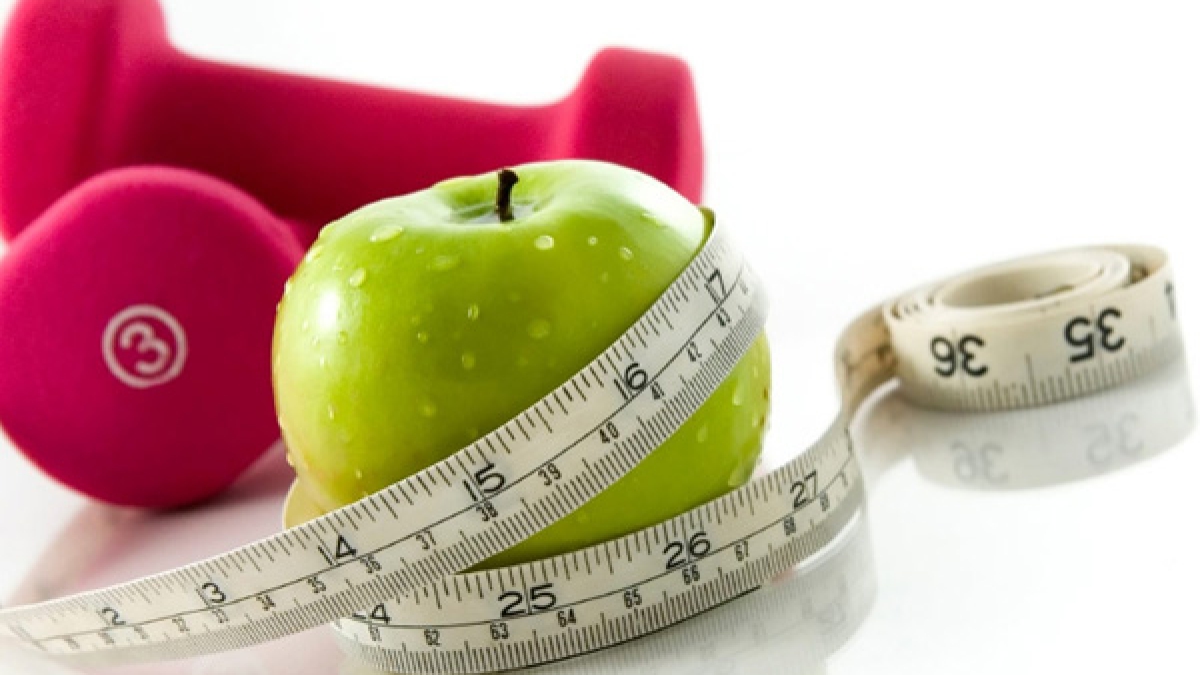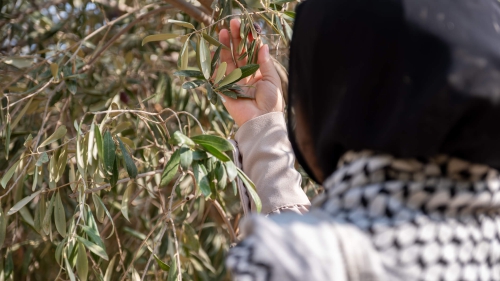Losing weight in Ramadan

Ramadan is an excellent opportunity to shed some extra pounds. You are already resetting your metabolism by the protracted, long overnight fast, as well as the daily fasting. Your metabolism resets and your body begins to change the way it does things.
Weight loss during the first few days is just dehydration. It may be exciting to see that you lost 2-3 pounds in the first day or two, but that's all water loss and dehydration. No human can lose 2 pounds of fat overnight. It's just water. But it's still exciting!
So how can we maximize weight loss during Ramadan?
The most important factor is to avoid gorging or "binge eating" at night. We have found that gorging once a day is the fastest way to gain weight. Your body thinks it's in a state of famine, and will store everything you eat as fat, because it is worried about food supply. Further, eating once a day scares your body and your body starts to shut down and slow down your metabolism. You don't want to slow down your metabolism or you will gain weight.
Eating small meals through out the evening and morning (after sunset) is the best way to maintain an adequate metabolism level and avoid the highs and lows of blood sugar associated with eating one massive meal. After eating a large meal, our blood sugar level increases. In response to this, our pancreas secretes a ton of insulin to bring the levels back down. That extra sugar is stored as fat. That is very bad. We want to eat small, well proportioned meals and snacks throughout the evening to avoid the sudden rise in blood sugar. We want to maintain an even and balanced level of blood sugar. Certain foods raise blood sugar levels more than others, and we will discuss that thoroughly.
Why do I feel hungry?
A lot of people ask why they don't feel hungry throughout the day if they skip Suhoor (breakfast meal before dawn), but are starving by 9AM if they eat Suhoor. It all comes down to blood sugar levels.
Eating a massive meal in the early morning hours (before dawn) leads to a large surge in blood sugar and a subsequent secretion of a lot of insulin to help bring down your sugar level. In about 2-3 hours your blood sugar levels will drop to lower than normal, and this triggers a hunger response. By 9AM you will feel like you are starving. And you have the whole day left. By noon that feeling will go away, but why do you want to do that to yourself? You can avoid that problem by eating the right things throughout the evening and early morning and you can avoid this feeling of hunger. Later on I will discuss what you can eat to minimize the hunger response.
To fulfill the religious recommendation of Suhoor (not obligation), just wake up and drink some water. Water has no consequences in terms of blood sugar levels. You could also just skip it altogether and continue the overnight fast into the day, you are already living off your fat stores, and can continue to do so throughout the day. You won't feel hungry. Overnight, your liver makes sugar for you to live off of, but can only do so for a limited period of time. If you continue this overnight fast into the day, you can start living off your fat stores. Isn't that the best way to lose weight? By burning fat?
So what can you eat?
What we are talking about is "Glycemic Index". This is a measurement of your blood sugar response to certain foods. For example, consuming 50 grams of pure white sugar, has a glycemic index of 111. That's really high. The idea is to eat foods that don't raise your blood sugar level. This will keep you from feeling hungry and will fill you up with very healthy food choices.
Vegetables like celery, lettuce, cucumbers, onions, and spinach have a glycemic index of less than 15. They have almost no effect on your blood sugar levels. Berries like strawberries, blue berries, raspberries as well as apples, have a glycemic index of 20-30 and are better than other fruit options. Some fruits like mangos and bananas have a glycemic index in 40-55 range. The fruit with the highest glycemic index is a pineapple with a GI (glycemic index) of about 66. This is still better than eating bread and baked goods.
Some vegetables are higher in sugar than others and have a higher glycemic index. Potatoes, corn, tomatoes (really a fruit), and carrots are all higher in simple sugars than other more fibrous vegetables. In fact, a baked potato has a GI of 115! That's about as high as it gets. The reason is that a baked potato is so processed, that it is very easy for our stomach to get at the simple sugars. The stomach has to do almost no work at all to get to the sugars. They are all there and readily accessible. Leaving the skin on and eating the baked potato with the skin, decreases the GI to 98, but it's still high. The skin acts as a fibrous buffer that keeps some of the sugars away from the stomach. The more fiber you eat, the harder it is for the stomach to get at the sugars. Leave the peel on apples, cucumbers, peaches, apricots, dates, kiwis, and other edible peels. Eat a lot of fiber!
Foods with the highest glycemic index are baked goods and simple carbohydrates like bread, cake, desserts, pasta, rice, potatoes, fruit juices, candy, soda, pop, and coffee and tea that you put a lot of sugar into. Some of these have glycemic indices as high as 100 or more. The food with the highest glycemic index is Corn Flakes breakfast cereal with a GI of 132. Breakfast cereals have some of the highest GIs. Instead eat real oatmeal with fruits slices! Real oatmeal doesn't have as high of a GI as the prepackaged ready to eat stuff. Or make your own yogurt parfait with real fruit slices and sprinkle oat meal on top.
There is an entire section on Glycemic Index on the Alo Diet Website. Check it out!
What can I eat?
The key is to eat foods that have a minimal glycemic index impact, yet still eat healthy and nutritious foods. Fruits, vegetables, nuts, beans, eggs, and lean meats are all very natural and very good for you. They also don't cause a significant increase in blood sugar levels.
Timing of meals
Here in the US, most Muslims indulge after sunset and don't wake up to have an early meal. Busy work schedules and busy lifestyles promote this bad eating behavior. This is a major contributor to gaining weight. The human body is very smart. The body figures out that it is only getting one meal a day and decides that it needs to store everything. So everything you eat gets stored as fat.
Normally, we tell our patients to eat small frequent meals throughout the day. Well, you can't do that in Ramadan. So you have to eat small, frequent meals throughout the night. This helps avoid the spikes in blood sugar levels and will keep you even and balanced.
So what do you eat?
At Iftar time (break-fast time), eat the traditional three dates and drink plenty of water. If you are really concerned about the amount of sugar in the dates, eat one date, but take three bites (or skip the date). Then take a break, go pray Maghrib (sunset prayer) and come back for the actual meal. For your meal, drink plenty of water, start with soup and salad, and pace yourself. It takes 20 minutes for your stomach to tell your brain that it is full. So slow down your process. Drinking plenty of water also starts stretching the stomach earlier and lets you know you are full earlier.
Then you can go to Taraweeh (the Ramadan nightly prayers), afterwards eat a small snack like a cheese stick or a handful of almonds or a bowl strawberries and light whip cream. You could even drink some unsweetened tea or coffee (or use a sugar substitute). Then you can go to sleep.
Wake up before dawn, and do not eat cereal! Eat an omelette with spinach, mushrooms, onions, broccoli, and some other healthy alternatives. Even a few nuts and an apple is fine. Or you could eat a banana and dark chocolate. Or another bowl of strawberries and bananas and light whip cream, but put some cocoa powder on the whip cream this time!
What should I avoid?
Avoiding simple sugars, processed foods, and baked goods will go a long way towards improving your metabolism, your health, and your well being. You will also feel more energetic and feel happier. Simple sugars (carbohydrates) are the culprits we discussed above; sugar, bread, potatoes, pasta, rice, ice cream, sweets, candy, dessert, baked goods like cakes, muffins, and many others.
You don't have to avoid these every day. You can have these once a week. But you must cut down on portion size. Eat a third of what you normally would eat. Cut a slice of cheese cake into thirds and eat just a small amount. You have to control your portions. Otherwise, you are just going back to your previous state of metabolism and gluttony.
Ramadan is meant to be a month where Muslims feel what poor people feel. We are supposed to empathize with the poor and needy. We are not supposed to be gorging and over-eating at night. That is the opposite of what Ramadan is supposed to be about. Ramadan is supposed to be an exercise in control of our basic human desires. It's supposed to give us a taste of hardship. It is not supposed to be a month of feasting.
What about desserts?
Ramadan is a time when families make certain desserts and foods that they don't normally make. Kanafa, Katayif, Baklawa, special ice creams, and sweet rice puddings are all traditional Ramadan treats. You have to restrain yourself. Once a week is ok, but very small portions. Do not indulge. Otherwise, you will put weight back on. It's very hard to control yourself sometimes. But remember what Ramadan is supposed to be about.
What about after Ramadan?
Ramadan is a great time to start new good habits and stop bad habits. There is no reason why you can't continue eating this well and this healthy after Ramadan. Diets aren't temporary. You eat every day! Why not make sure you are eating the right things every day? Use this to kick start a new way of eating and living.
If you quit smoking (or hookah) during Ramadan, use this opportunity to continue to avoid these awful habits. Make no mistake, smoking of any kind IS KILLING YOU! Use this time to reflect on that and stop smoking.
In cardiology, we know that the single biggest risk factor for heart disease is either being a current smoker or having a history of smoking in your past. If you could make one single change in your life, it should be to quit smoking. I don't mind if you put on 30 pounds of fat, just quit smoking. Smoking is far worst than being overweight. Don't do it!
Go on! Lose Weight!
If you enjoyed reading these recommendations and want a diet and life plan for the rest of your life, please read the Alo Diet online. It's totally free! No registration, no subscriptions, no fees! And it's physician approved!
You will get an in depth education on nutrition, metabolism, digestion, glycemic index, cardiology, diabetes, women and weight loss, and lots of tips and tricks for losing weight. If you are a physician, have your patients follow the diet. They can read it all online for free and download plenty of resources and pamphlets. Tell all your friends about it to!
Dr. Mohammed Alo is a Board Certified Internal Medicine Physician practicing in Chicago currently enrolled in a Cardiovascular Medicine Fellowship.
Topics: Food, Health, Ramadan
Views: 133334
Related Suggestions
and because am getting married soon i wanted to take and advantage of
ramadan also i train an hour each day and then the next day a half
hour i hope i lose a good mount of weight and to tight up my skin :)
thank you
and may god bless you
and ramadan karim ^_^
I agree with everyone. Great exlanation of how our body works. I like how he explains everything in plain English. I am sure they have tons of research and science to back up these claims. Just go on PubMed and type in Ramadan and Fasting. Tons of research.
I fully understand weightloss and metabolism now. Excellent work! Loved the www.AloDiet.com website as well. Wow! If there was ever a healthy way to lose weight, that is it!
Great article by dr. Alo. Congrats, please have some Facebook & Twitter links.
Muslim scientist, should have a higher standard than simple intuition and anecdotes. Some effort should be made by the author to look up some clinical data. I am disappointed at the lack of research by the writer.
This article should have been better titled, "How to eat in the month of Ramadan" or something along those lines. Anyway, this is just one man's opinion.
Thank you
Dot give people hope that losing weight is easy its hard, I go gym with regularity but each day is a challenge.

















